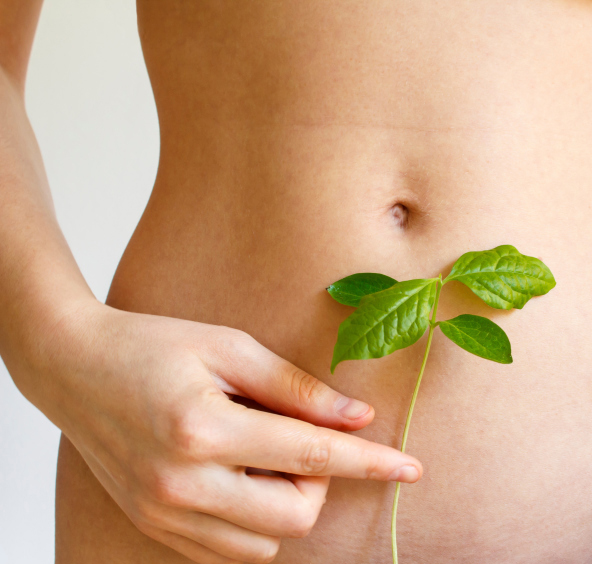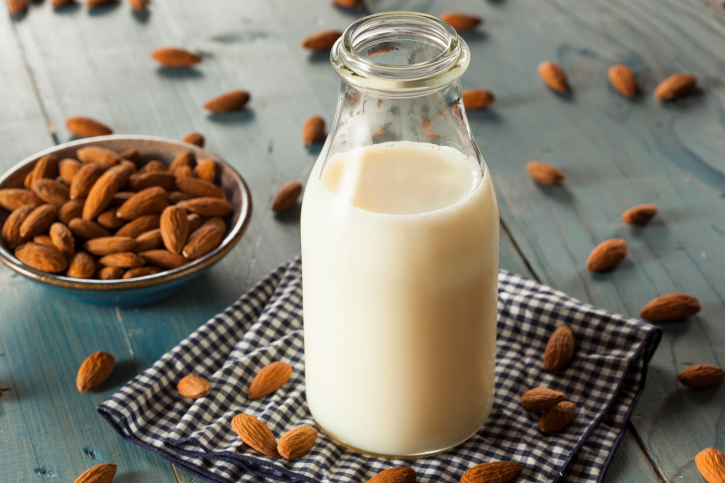Stop The Misery of Eczema with These Natural Methods

If you’ve got eczema that flares up from time to time, or is chronic, you know how uncomfortable, and embarrassing, it can be. You’ve likely tried every skin cream and/or prescription medication that’s out there. But, you may have never been told that eczema flares may actually be linked to the health of your gut. Let me tell you why…
Probiotics May Help Your Eczema More Than Drugs
Eczema is a condition governed by the autoimmune system. It presents itself as an allergic dermatitis. Researchers now think that flareups of eczema are linked to fungal overgrowths in the gut, notably Candida. The gut is a large part of the immune system. These candidal overgrowths result in inflammation of the immune system which then spread throughout the body. They are most obviously seen in the skin, your largest organ. This inflammation sets the perfect stage for bacterial, fungal and viral infections.
Eczematous rashes can chronically recur for years and are usually treated symptomatically with cortisone-like drugs and/or creams when they flare. Yet, when a patient comes to me for eczema, I also put them on a gut detox regimen to boost their immune system and help the eczema flares calm down.
But, keeping a healthy gut, and decreasing eczema flares, is something that needs to be done on a maintenance basis. So, here are some natural, non-drug ways you can keep a healthier gut, boost your immune system, and decrease eczema flares.
First of all, it’s important to note that candidal, or other fungal organism, overgrowths in the gut result from 1 major culprit: sugar. Eating too much refined sugar, “white” carbohydrates, or alcohol, that are metabolized quickly as sugar causes your entire system to become too acidic. This high acid system kills off the good bacteria in your gut that suppresses the bad bacteria, like candida, etc. It also helps promote the growth of cancer cells as well.
Second, it’s important to re-balance your gut flora and systemic pH. This is done by eating more alkali based foods like green vegetables and low sugar fruits. If you drink cow’s milk, you’ll want to stop for a while to get your system under better control. Milk contains 11 grams of sugar, in the form of lactose, that can contribute to the problem. It’s also on the acid side. Substitute unsweetened almond, coconut or cashew “milks” that have just as much, or more, calcium in them, no sugar, and good levels of potassium.
Gut overgrowths of bad bacteria are also often linked to a condition called “leaky gut” syndrome caused by chronic inflammation. It’s necessary to heal this condition as well. Essentially fatty acids like olive oil and other good fats, like coconut oil, can help soothe and heal an inflamed gut.
Another helpful nutrient is bone broth and other gelatin-type foods. Bone broth is made from boiling down chicken or beef bones, as you would when making soup, then drinking it. Collagen is released from the bones during the boiling. This not only helps gut tissues heal but it also strengthens your skin to help heal itself and tighten it for a younger look.
You may also be gluten sensitive and not know it. Try removing all gluten-based foods from your diet and see if your eczema responds. When your gut is inflamed, many important skin-health nutrients may go unabsorbed, or poorly absorbed. These include vitamin A and the B vitamins. Taking a cod liver oil supplement can help reintroduce these nutrients back into your system in a liquid form that’s more easily absorbed.
Fiber is another important part of keeping your gut, and your immune system, healthy. Aim for 25 grams a day from vegetables, flax seed, low sugar fruits, and some fermented foods like kimchi, sauerkraut, pickles. Without enough fiber, undigested food hangs around in your gut way longer than it should. As it tries to decompose, it gives off toxins that can get released into your blood stream. Some of these exit your body through your kidneys, but many of them try to exit through your skin.
Fermented foods add beneficial probiotics to your diet which help you digest your food better. Undigested food and rancid fats in the colon can also create inflammation and breakdown of gut tissues. Greek yogurt, Kefir, can also have good levels of lactobacillus in them. But, to be assured of getting enough, it’s best to take a probiotic daily. Look for one that contains 1.5 billion live CFU’s (colony forming units). Keep in mind that your body, in its healthy state, produces much more gut bacteria than that.
In addition, anyone over 40 also likely needs a little digestive help from hydrochloric acid, which decreases significantly with age. Taking a 250 mg vitamin C tablet can also help you digest heavier meals. The ascorbic acid in them helps break down animal fats and tissues to help you digest them better. Be sure to also drink enough water to help flush waste and toxins from the gut.
As for the eczematous lesions themselves, applying a heavy moisturizer, like coconut oil, to them can decrease the itch and help them heal. Magnesium, and/or oatmeal soap, baths can also decrease the itch and help lesions heal.
Decreasing stress in your life also plays a part in preventing eczema flares as stress over-stimulates your immune system. Exercise helps decrease stress as well as remove toxins from your body.
Remember, each system of your body works in tandem with each other. If one is in poor health, like a domino-effect, the others will eventually suffer, or go down, too. Your skin health is interdependent on your gut health, so do all you can to keep it working properly.

